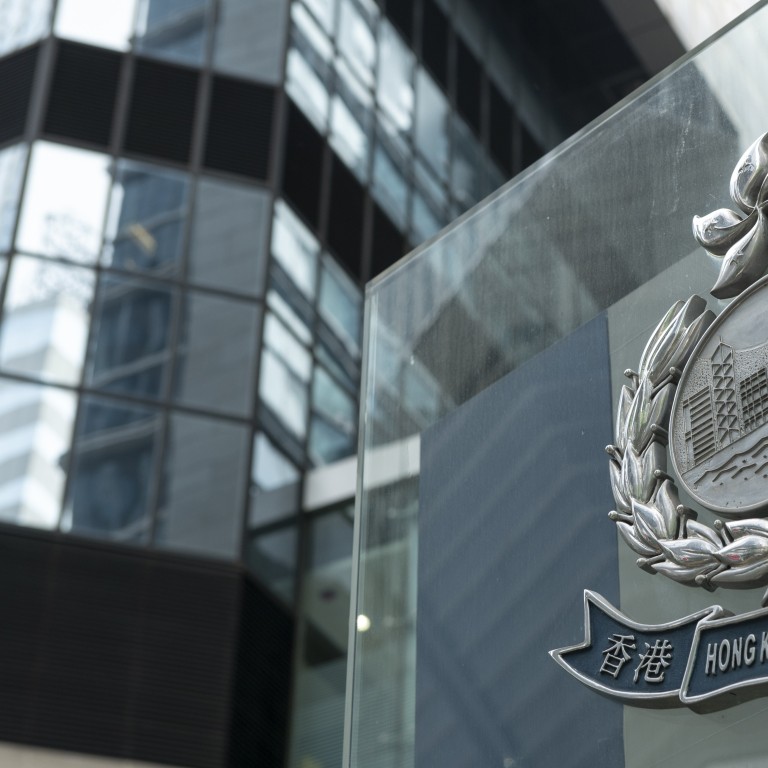
Dashcam recording of conversation leads Hong Kong police to uncover fake car crash scam, arrest four
- Officers got clues about the scam while investigating an accident involving two cars on Lam Kam Road in Tai Po on the night of March 4
- Police arrested four men and are looking for another two over the plot to swindle cash from a government assistance fund for accident victims
A dash camera recording of a conversation among suspected swindlers has led to the arrest of four Hongkongers after police uncovered a car crash scam that was attempting to siphon off money under a scheme to help traffic accident victims.
A citywide manhunt for another two men in connection with the alleged plot to swindle cash from the government fund was still under way on Thursday morning.
Over HK$8 billion from scam victims laundered through bank accounts in 2020
Officers got a whiff of the scam while investigating a “traffic accident” involving two cars on Lam Kam Road in Tai Po on the night of March 4.
The two cars were carrying six men in total at the time of the incident and they were alleged to have suffered injuries and required medical treatment in hospital.
When officers checked the footage of the dash camera installed in one of the two cars, they found the device recorded the conversation between the driver and the passengers on board the vehicle while preparing for a crash, according to a source.
The source said an initial investigation showed the driver of the car was instructed to slow down before the second vehicle approached from behind and rammed into the back of the first car.

He said officers suspected the gang plotted the crash and used sick leave certificates to apply for about HK$40,000 (US$5,100) from the government fund under the Traffic Accident Victims Assistance Scheme.
The non-means-tested scheme, administered by the Social Welfare Department, aims at providing early financial help to traffic accident victims or their dependents, regardless of who was at fault in causing an accident.
After a two-week probe, police arrested four men on Tuesday on suspicion of conspiracy to defraud – an offence that carries a maximum penalty of 14 years in jail.
Police arrest six over HK$7.5 million online scam preying on city’s jobless
“An initial investigation showed they were suspected of arranging the traffic accident to obtain sick leave certificates and then seek compensation from the relevant government department,” police said in a statement.
“Officers have successfully prevented the fraud. The investigation is continuing and we do not rule out the possibility of further arrests.”
According to the force, police attach great importance to fraud that targets government funding and will strive to cooperate with various departments to combat such illegal acts.
Police said the four suspects, aged between 26 and 55, were released on bail, pending further investigation.
In the 2019-20 financial year, 9,342 applications were made under the scheme, while 6,820 were approved.
Secretary for Labour and Welfare Law Chi-kwong told the Legislative Council in December last year that over the previous five years, the Social Welfare Department had referred five suspected cases of attempted fraud to police.
To prevent abuse and fraud, he said, an accident had to be reported to police and determined by officers as a road traffic accident.
He added that in the case of injury, a registered doctor had to certify that such injuries required the victim to be hospitalised for no less than three days or issued with proof for medical leave of no less than three days.

